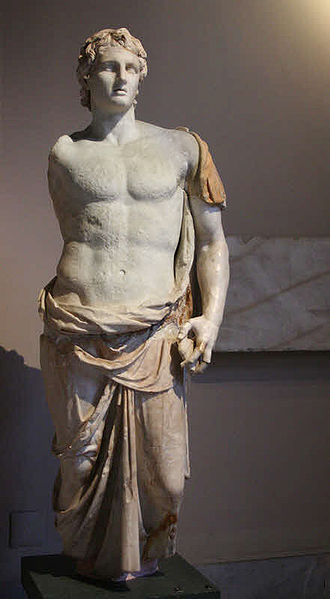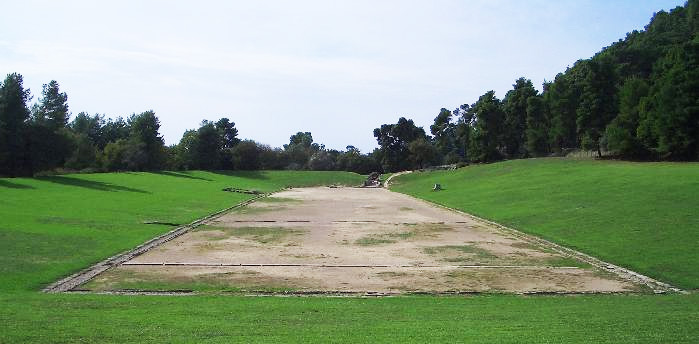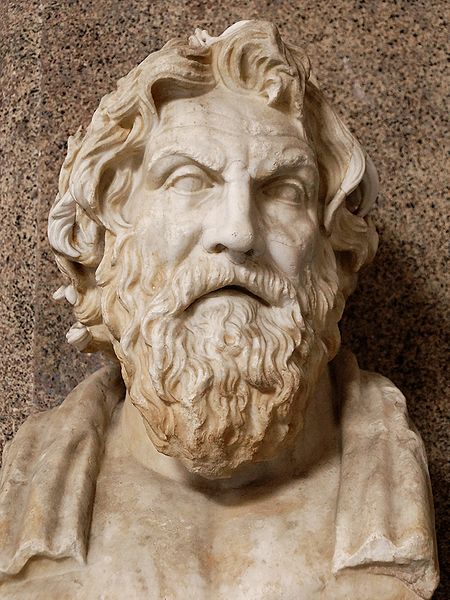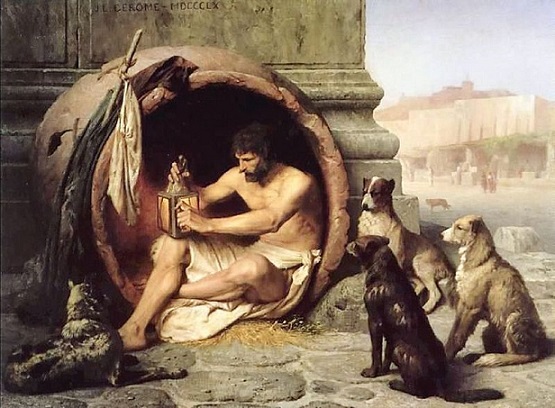|
HELLENISTIC PERIOD

Alexander the Great
Alexander III of Macedon
(356–323 BCE)
Alexander was a
king of the Ancient Greek kingdom of Macedon.
Aristotle's father was the physician to Alexander's
father Philip II, and Aristotle was the private
tutor to the young Alexander until he was 16. Philip
II was assassinated, and Alexander the Great took
the throne at the age of twenty. He spent most of
his ruling years on a military campaign. He
overthrew the the king of Persia - Darius III. He
was undefeated in battle, and created one of the
largest empires of the ancient world - stretching
from Greece to northwestern India. He founded over
twenty cities that bore his name - most notably
Alexandria in Egypt.
Philosophers like Socrates,
Plato, and Aristotle thought the good-life could
only be obtained through an idealized state, so citizens should strive to improve
the state.
This sentiment ended with the death of Alexander the Great. The Romans conquered
the Greek states, and Greek culture merged with
other cultures. The Greeks no longer felt they
were in control of the destiny. Philosophers abandoned the idea that the good-life
could be obtained by participation in the state. In
their pursuit for values they turned their
attentions inward. This marks the transition from
the Hellenic to the Hellenistic period.

Something to consider
Collaborate:
The Olympic Games started in Greece.
They were held at the sanctuary of Zeus in Olympia,
Greece. During the Games, all conflicts among the
participating city-states were postponed. As you are reading this
chapter,
ask yourself what the
Olympic torch lighting ceremony represents.

Sanctuary of Zeus
CYNICISM
ANTISTHENES
(445-365 BCE)

LIFE
Antisthenes started
his studies by studying rhetoric with
the sophist Gorgias. He later became a student of
Socrates. He and Plato were rivals, and Socrates'
greatest students. While Plato's philosophy was more
theoretical, Antisthenes' philosophy was more a way
of life. Antisthenes is the founder of Cynic philosophy.
It embodied Socratic principles, and later influenced
Stoicism and Christianity.
PHILOSOPHY
1. He rejected
conventions, and turned to a natural life.
2. Happiness is obtained
through virtue - not pleasure.
3. Virtue is obtained by
detachment from all possessions and pleasures.
(even
good pleasures)
4. Organized religion is
a human fabrication.
5. Only one God exists.
6. God is unlike
anything on earth, and cannot be understood by any
representation.
DIOGENES
(412-323 BCE)

LIFE & PHILOSOPHY
1. He was born in Sinop or modern-day Turkey.
2. Diogenes was one of
the founders of the Cynic philosophy.
3. He was a student of Antisthenes, his student was Crates.
4. Diogenes slept in an urn in the
marketplace.
5. His only possessions were the cloths
he was wearing and a cup. When he saw a boy drinking
from his hands, he threw his cup away.
6. He rejected established customs and
values.
7. He rejected pleasure as the good or
end in life.
8. When Alexander the Great granted him
any wish, he replied; stand out of my sunlight.
9. None of his writings survived.
|